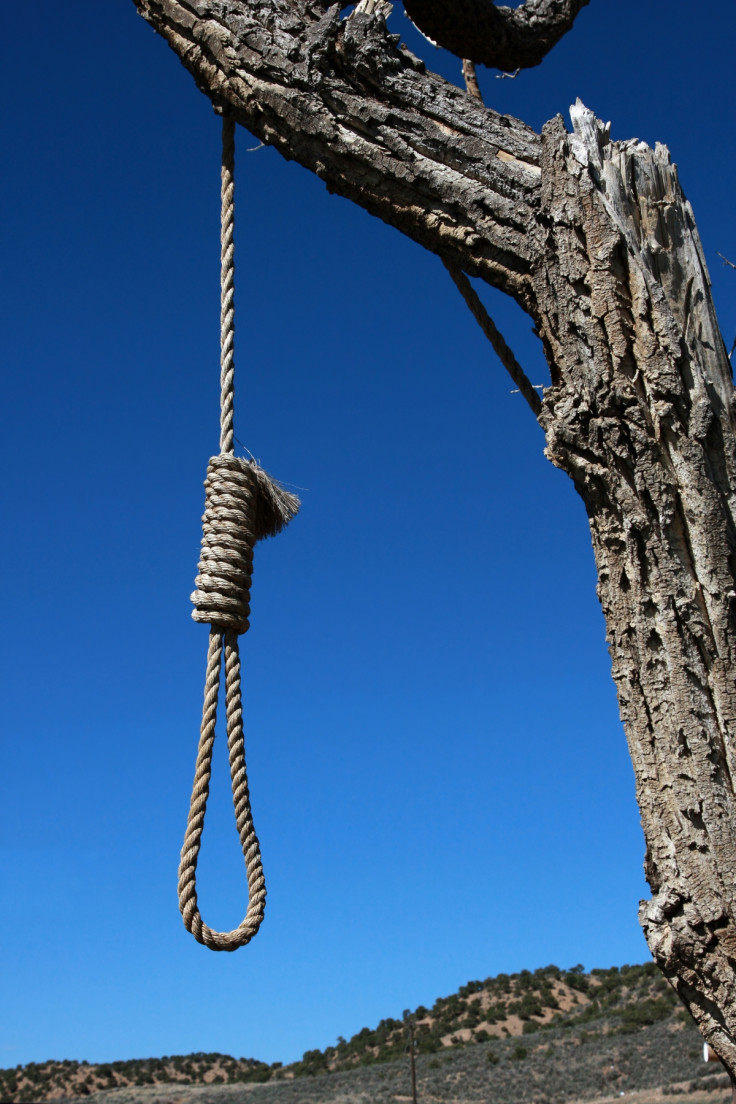Pakistan: Five 'Crimes' That Can Get You Executed

Capital punishment is legal in Pakistan, also one of the eight countries in the world where people under the age of 18 can face execution for committing certain crimes.
Although other ways of carrying out the death penalty are considered legal, in practice hanging is method of execution most widely adopted.
Blasphemy
According to Pakistani Penal Code: "Whoever, with the deliberate intention of wounding the religious feelings of any person, utters any word or makes any sound in the hearing of that person or makes any gesture in the sight of that person or places any object in the sight of that person, shall be punished with imprisonment of either description for a term which may extend to one year, or with fine, or with both."
In 1982, a clause prescribed life imprisonment for "wilful" desecration of the Koran.
In 1986, a separate clause was inserted to punish blasphemy against the Prophet Muhammad and the penalty recommended was "death, or imprisonment for life".
A British man diagnosed with schizophrenia has been recently sentenced to capital punishment for blasphemy.
Drug trafficking
According to Pakistan penal code, illegal trafficking of more than one kilogram of a drug is punishable by death.
A British woman has swerved the death sentence but been sentenced to life imprisonment after she was caught attempting to smuggle £3.2m worth of heroin out of Pakistan.
Mother-of-three Khadija Shah, 26, was six months pregnant when she was arrested at Islamabad airport in May 2012
Her baby daughter, Malaika, has remained in prison with her ever since she was born.
Adultery
Extramarital sexual relations may lead to death sentences.
A couple accused of adultery were stoned to death in Pakistan's western Baluchistan province in February 2013.
However, after the couple were killed, the woman's father and brother, and the man's uncle and father were arrested, along with a cleric believed to have issued the order to kill them.
In Pakistan, honour killing is very widespread.
Under the banner of 'honour killing' people (mainly women) are killed, often by parents and relatives, if their behaviour is considered to bring shame upon the family.
The Human Rights Commission of Pakistan reported that 943 women died in so-called honour killings in Pakistan in 2011.
Amnesty International reported 960 honour killings in Pakistan in 2010.
Apostasy
The abandonment of Islam may lead to execution.
The Pakistani penal code does not specify death penalty for apostasy; Pakistan is however ruled by Sharia law and Sharia courts are theoretically in a position to apply the death penalty.
According to a 2010 poll by Pew Research Centre, 6% of Muslims in Pakistan agree with the death penalty being issued for leaving Islam.
Kidnapping
Kidnapping to murder, harm, for slavery or sexual abuse or trafficking, or putting the victim in the danger of any of those things, is punishable by death, according to the Pakistan penal code.
Kidnapping for ransom or extortion is also punishable by death.
© Copyright IBTimes 2025. All rights reserved.






















